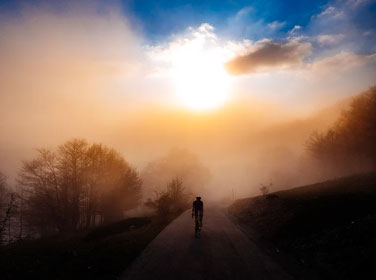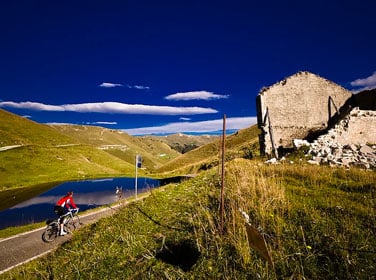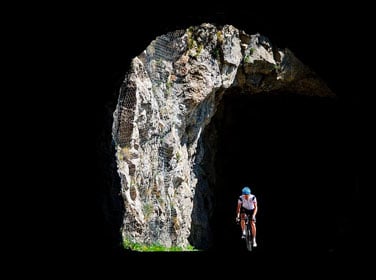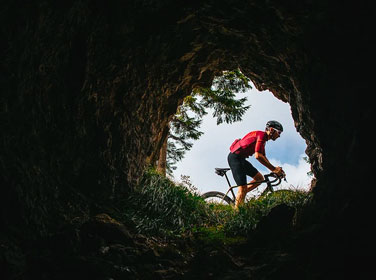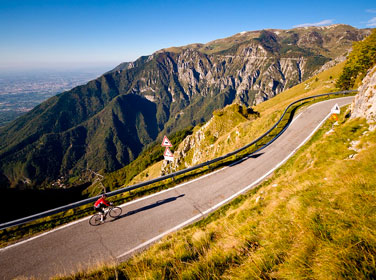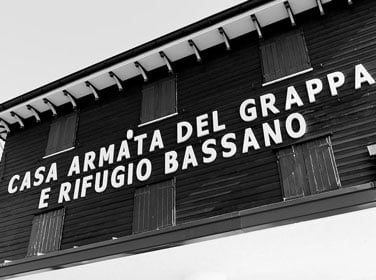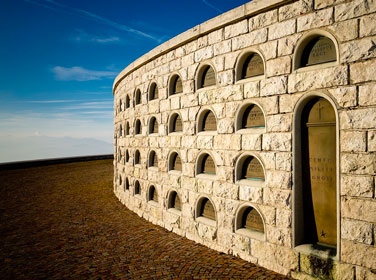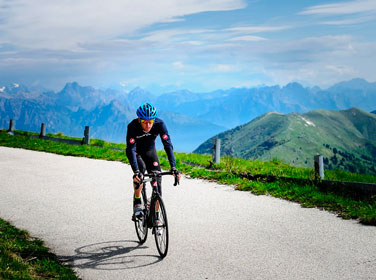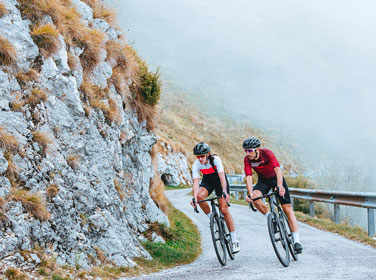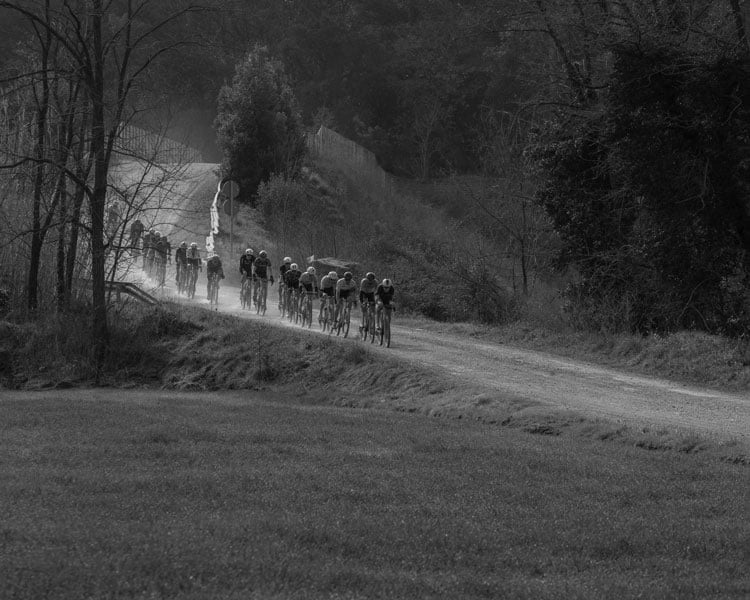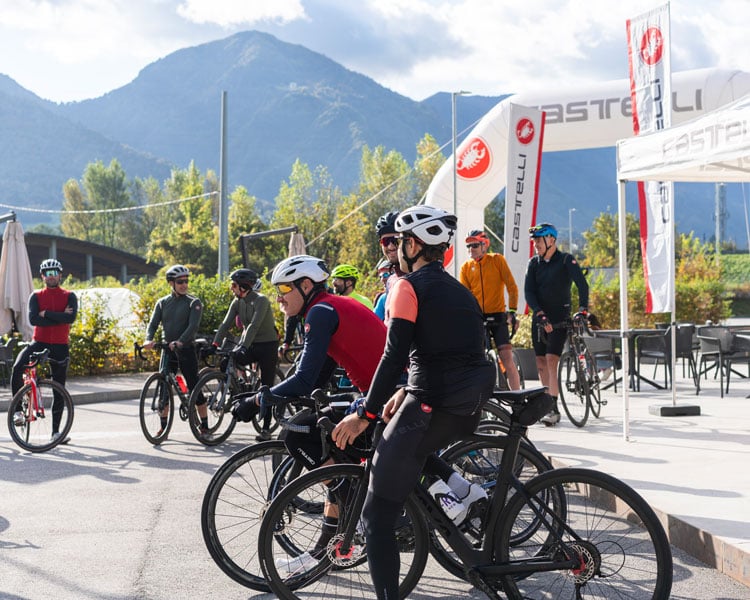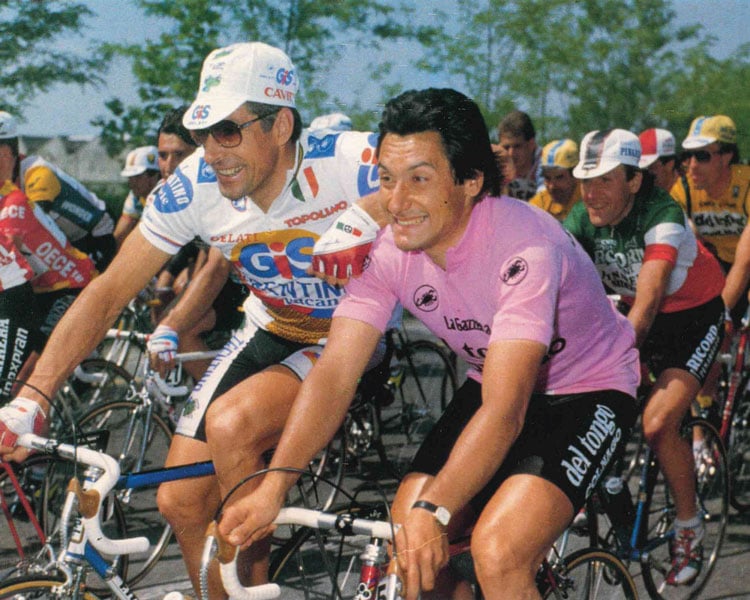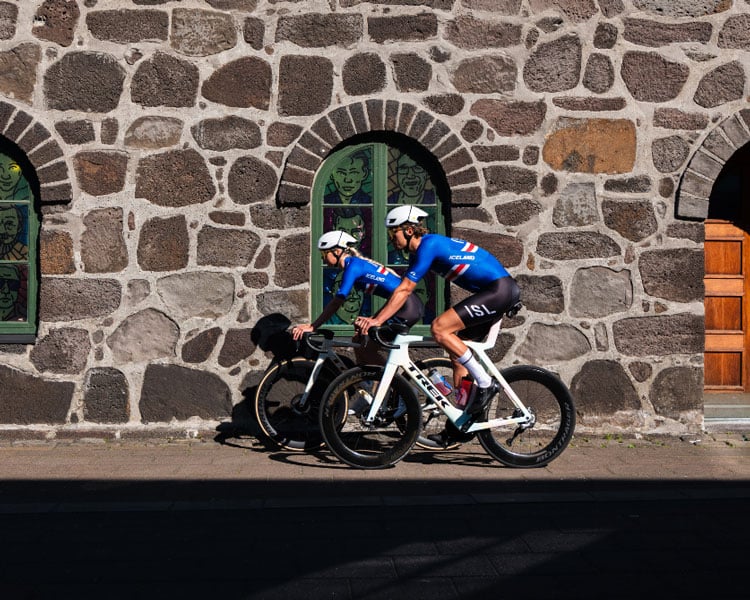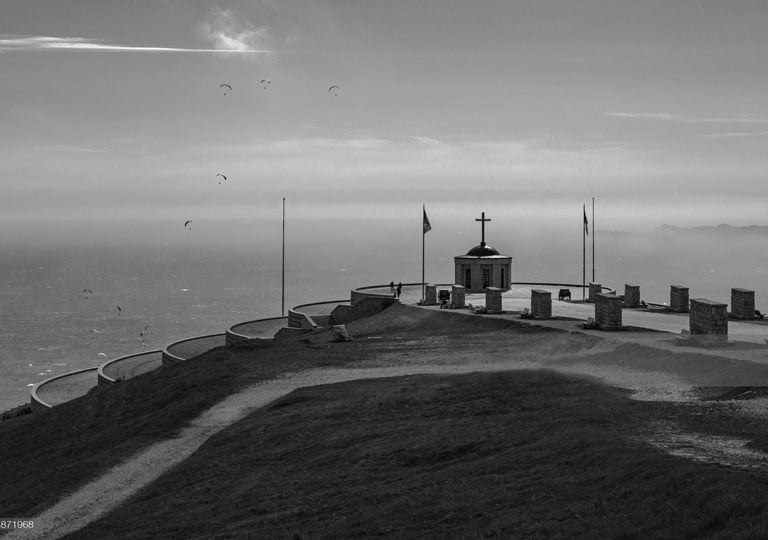
MONTE GRAPPA
Monte Grappa rises from the plains to a height of 1,775 meters and offers the greatest concentration of HC climbs to one summit than any other mountain in the world. It’s the first mountain to rise from the Veneto Plain, much like Mont Ventoux’s dominance over Southern Provence.
Monte Grappa is in our backyard; the Castelli headquarters is less than a kilometer from where the main northern ascent begins. It's a true paradise for cyclists, offering ten paved routes to the summit and an unlimited amount of gravel roads and dirt trails. It's highly recommended for any serious cycling fan or the ultimate climber's bucket list.
Since Veneto is one of the heartlands of Italian cycling, it’s no surprise that Monte Grappa has featured several times in the Giro d’Italia.
Monte Grappa is in our backyard; the Castelli headquarters is less than a kilometer from where the main northern ascent begins. It's a true paradise for cyclists, offering ten paved routes to the summit and an unlimited amount of gravel roads and dirt trails. It's highly recommended for any serious cycling fan or the ultimate climber's bucket list.
Since Veneto is one of the heartlands of Italian cycling, it’s no surprise that Monte Grappa has featured several times in the Giro d’Italia.
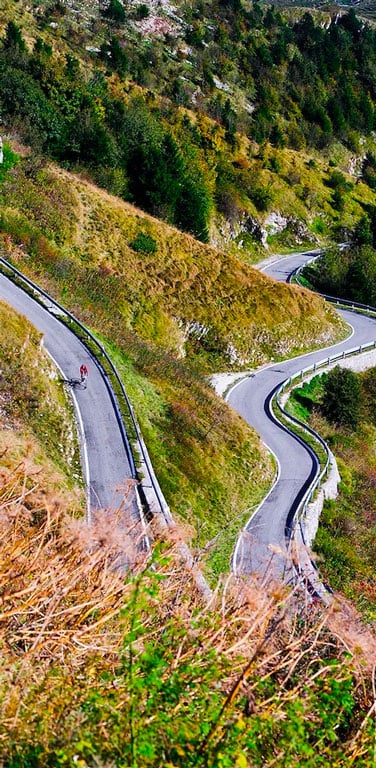
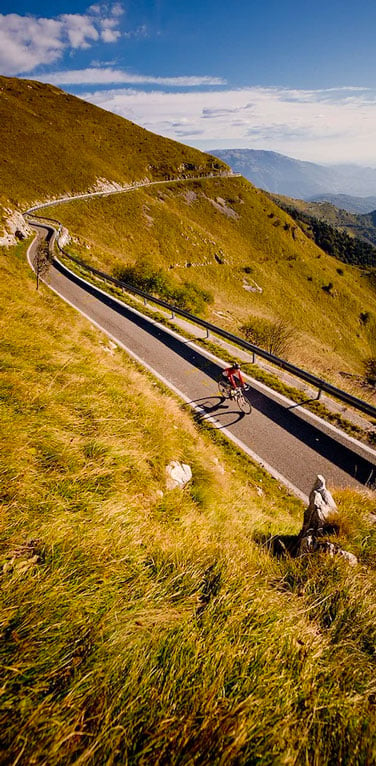
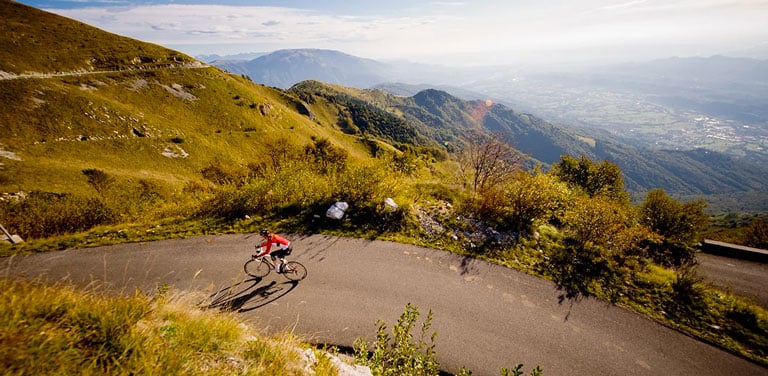
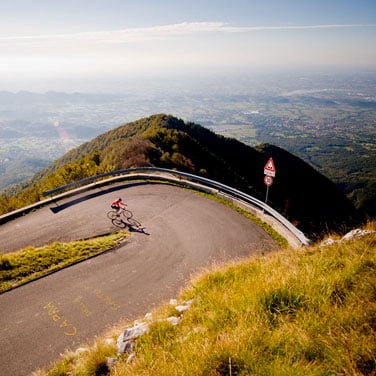
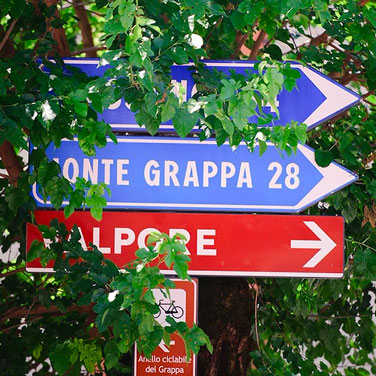
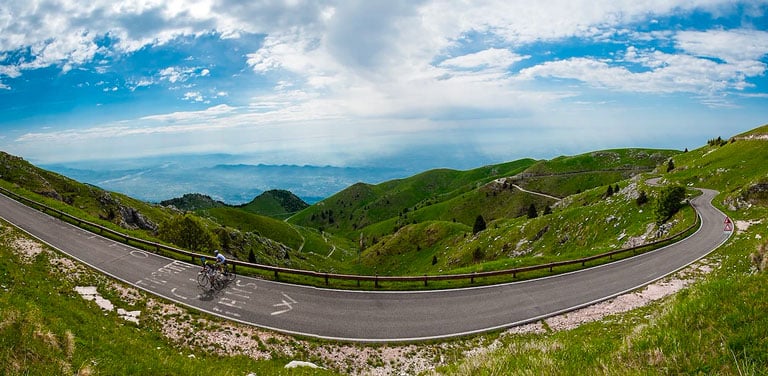
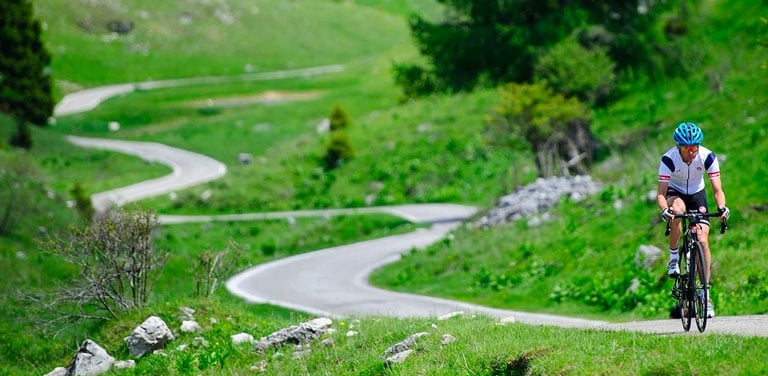
THE SURROUNDINGS
Grappa is surrounded on two sides by moving water. Two of Italy’s great rivers stand guard on its western and eastern sides—the Brenta and Piave rivers, respectively. Before the Dolomites begin in earnest is a small valley to the north with the cities of Fonzaso (where Castelli’s head-quarter is located), Feltre, and Belluno.
It’s about 100 kilometers around Monte Grappa. You’ll need every bit of that 100 km to find all ten ways up the mountain.
It’s about 100 kilometers around Monte Grappa. You’ll need every bit of that 100 km to find all ten ways up the mountain.
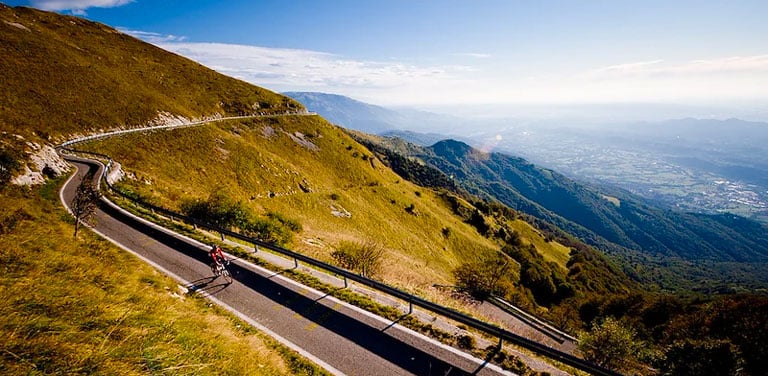

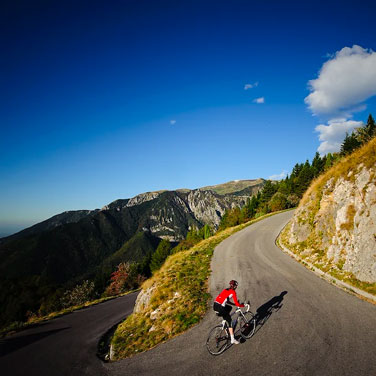
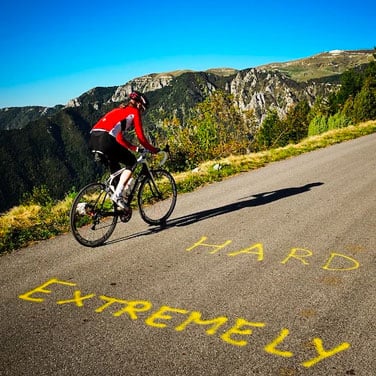
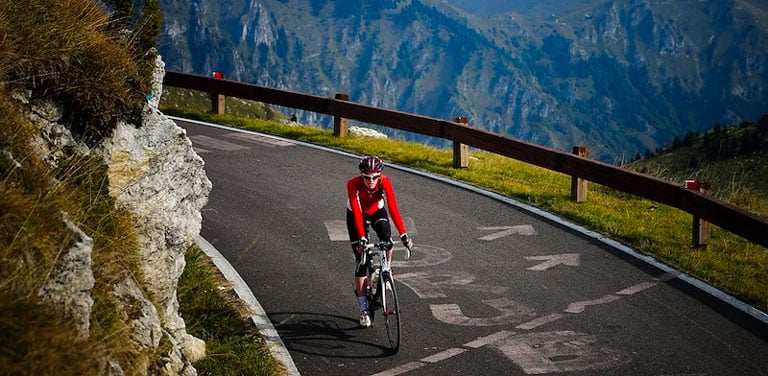
REMINDER OF DARKER DAYS
This mountain encapsulates you on a journey of wonder, not only by its beauty and magnitude but by the many reminders of darker days when the Grappa’s slopes became the scene of battles during World War I (as well as the Second, as the Austro-Hungarian army attempted, without success, to break through Italian lines to head down into the Po Valley below.
The remains of thousands of troops who died in the battles between November 1917 and October 1918 are housed in the striking memorial that stands on the summit of the mountain, which also retains some of the fortifications installed by the Italian army that stemmed their enemy’s advance.
The ferocious fighting in the First World War necessitated the building of roads upon roads in the area, and Monte Grappa, the centerpiece, is rich in inroads. The many sides of Monte Grappa begin from three main directions, each of which offers a very different journey on its way to the summit. There are four main roads; three of these roads are the main routes up the mountain.
The remains of thousands of troops who died in the battles between November 1917 and October 1918 are housed in the striking memorial that stands on the summit of the mountain, which also retains some of the fortifications installed by the Italian army that stemmed their enemy’s advance.
The ferocious fighting in the First World War necessitated the building of roads upon roads in the area, and Monte Grappa, the centerpiece, is rich in inroads. The many sides of Monte Grappa begin from three main directions, each of which offers a very different journey on its way to the summit. There are four main roads; three of these roads are the main routes up the mountain.
THE CLIMBS
In the southwest, we have the two ascents. The main ascent from Bassano del Grappa, Romano d’Ezzelino—the Strada Cadorna—is the classic, easiest approach of Monte Grappa. It was the main military supply route, so it is kind and pleasant to ride with its 6% average gradient over 26.5 kilometers of climbing. The ascent from Semonzo is nothing short of Grand Tour perfection, averaging 8 percent for just about 20 kilometers. It’s fantastic, nearly perfect.
The north sides feature a Dolomiti backdrop, and all three ascents start a few kilometers from the Castelli HQ; Cismon del Grappa, Caupo, and Seren del Grappa (Strada Chiesa Nuova). All three climbs are tougher than the Strada Cadorna from Bassano, with a longer one-kilometer section hovering between 18 and 20% gradient on the Strade Chiesa Nuova.
From the east, three hard adjoining climbs (Alano di Piave, Pederobba, Cavaso del Tomba). Three hard ascents with average grades over 10% for all of them and huge chunks of time spent northward of 15%.
The last two of the ten ascents rise up from the Veneto plains in the south, Possagno (Strada degli Alpini ) and Fietta (known as the “Salto della Capra), or the goat's jump), with stretches well beyond 20% gradient, putting them on the podium alongside the fearsome Zoncolan and Mortirolo.
The north sides feature a Dolomiti backdrop, and all three ascents start a few kilometers from the Castelli HQ; Cismon del Grappa, Caupo, and Seren del Grappa (Strada Chiesa Nuova). All three climbs are tougher than the Strada Cadorna from Bassano, with a longer one-kilometer section hovering between 18 and 20% gradient on the Strade Chiesa Nuova.
From the east, three hard adjoining climbs (Alano di Piave, Pederobba, Cavaso del Tomba). Three hard ascents with average grades over 10% for all of them and huge chunks of time spent northward of 15%.
The last two of the ten ascents rise up from the Veneto plains in the south, Possagno (Strada degli Alpini ) and Fietta (known as the “Salto della Capra), or the goat's jump), with stretches well beyond 20% gradient, putting them on the podium alongside the fearsome Zoncolan and Mortirolo.

AT THE TOP
No matter what ascent you choose to take on the Monte Grappa, one destination awaits the Rifugio Bassano and the parking lot just below the war memorial site. (Sacrario Militare del Monte Grappa). It’s here where you start to feel the spirit of the Grappa.
On a clear day, you will see the lagoon of Venice in the southeast and the sharp summits of the Dolomites to the north.
When looking out over the vast peaceful slopes, it’s hard to imagine a time when the very places bringing us so much pleasure were scenes of war and unthinkable acts just a few decades ago. No matter how distant those memories of battles that are now 104 years old may stray while you climb the mountain, there’s a somber reminder that you can’t get away from at the top.
Built into the hillside of Monte Grappa, the guarded monumental burial site, in which 22,910 identified and unidentified soldiers rest, brings an overwhelming sense of spirituality throughout the Grappa, somehow with the reminders of war within your tired gaze, the challenge of the mountain, and testing gradient pale into insignificance. Monte Grappa is an Italian national treasure and one to be enjoyed, respected, and visited every once in a while.
On a clear day, you will see the lagoon of Venice in the southeast and the sharp summits of the Dolomites to the north.
When looking out over the vast peaceful slopes, it’s hard to imagine a time when the very places bringing us so much pleasure were scenes of war and unthinkable acts just a few decades ago. No matter how distant those memories of battles that are now 104 years old may stray while you climb the mountain, there’s a somber reminder that you can’t get away from at the top.
Built into the hillside of Monte Grappa, the guarded monumental burial site, in which 22,910 identified and unidentified soldiers rest, brings an overwhelming sense of spirituality throughout the Grappa, somehow with the reminders of war within your tired gaze, the challenge of the mountain, and testing gradient pale into insignificance. Monte Grappa is an Italian national treasure and one to be enjoyed, respected, and visited every once in a while.
FOOTNOTES
Photo: Jered and Ashley Gruber
Photo: Jered and Ashley Gruber
